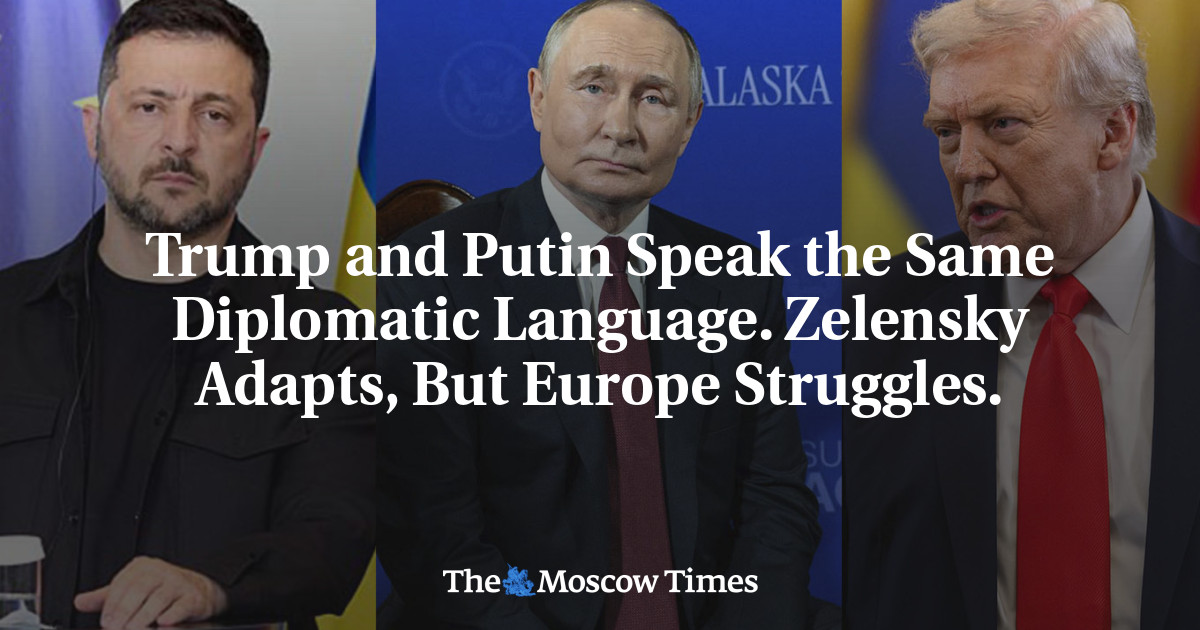
Trump and Putin Speak the Same Diplomatic Language. Zelensky Adapts, But Europe Struggles.
How did your country report this? Share your view in the comments.
Diverging Reports Breakdown
Trump and Putin Speak the Same Diplomatic Language. Zelensky Adapts, But Europe Struggles.
U.S. President Donald Trump rolled out the red carpet for Vladimir Putin, staged military flyovers and even let the Russian president ride in his armored limousine. Trump hosted his Ukrainian counterpart Volodymyr Zelensky and a room full of European leaders in Washington. What unites the three — the spy, the actor, and the real-estate magnate — is a shared lesson from their past lives: the art of adapting. For Trump, shameless pivoting is not weakness; it is how you keep the deal moving. For Putin, concealment, mimicry, and adjusting swiftly to shifting political winds are key to his success as a strongman. But for Brussels, this chameleon-like adaptability often frustrates Europe, which struggles to practice it, leaving its diplomacy ineffective in Ukraine peace negotiations.
Putin, trained by the KGB, perfected the arts of concealment, mimicry, and adjusting swiftly to shifting political winds. He deploys vague formulas — “useful talks” in a “constructive atmosphere” — that keep doors open and buy time on the battlefield. Zelensky, the former actor, understands the audience and costume. He shifts personas depending on the stage: in Kyiv, he embodies defiance, while in Washington, he expresses gratitude. Trump, the businessman, treats politics like a deal where flexibility is required to “get it done.” Like in a real estate negotiation, he flatters the client, projects courtesy and postpones specifics to keep the agreement alive. What critics saw as humiliation in Alaska — dropping his demand for an immediate ceasefire — was, for him, simply a response to shifting circumstances. For Trump, shameless pivoting is not weakness; it is how you keep the deal moving. In the shared logic of both Putin and Trump, the Alaska summit was no failure but a necessary diplomatic ritual. The performance itself became the deliverable. The choreography — including the unusually deferential press conference with no questions staged to suit Putin — was the point. There were no results to show, but Trump declared “great progress” had been made. Neither man offered specifics, because specifics tie you down. The mere suggestion that Putin might one day meet Zelenskyy was hailed as already a great achievement. For Trump and Putin, vagueness means victory. But for Brussels, vagueness means failure. This chameleon-like adaptability — unbound by principles, heavy on symbols but light on substance — often frustrates Europe, which struggles to practice it, leaving its diplomacy ineffective in Ukraine peace negotiations.
